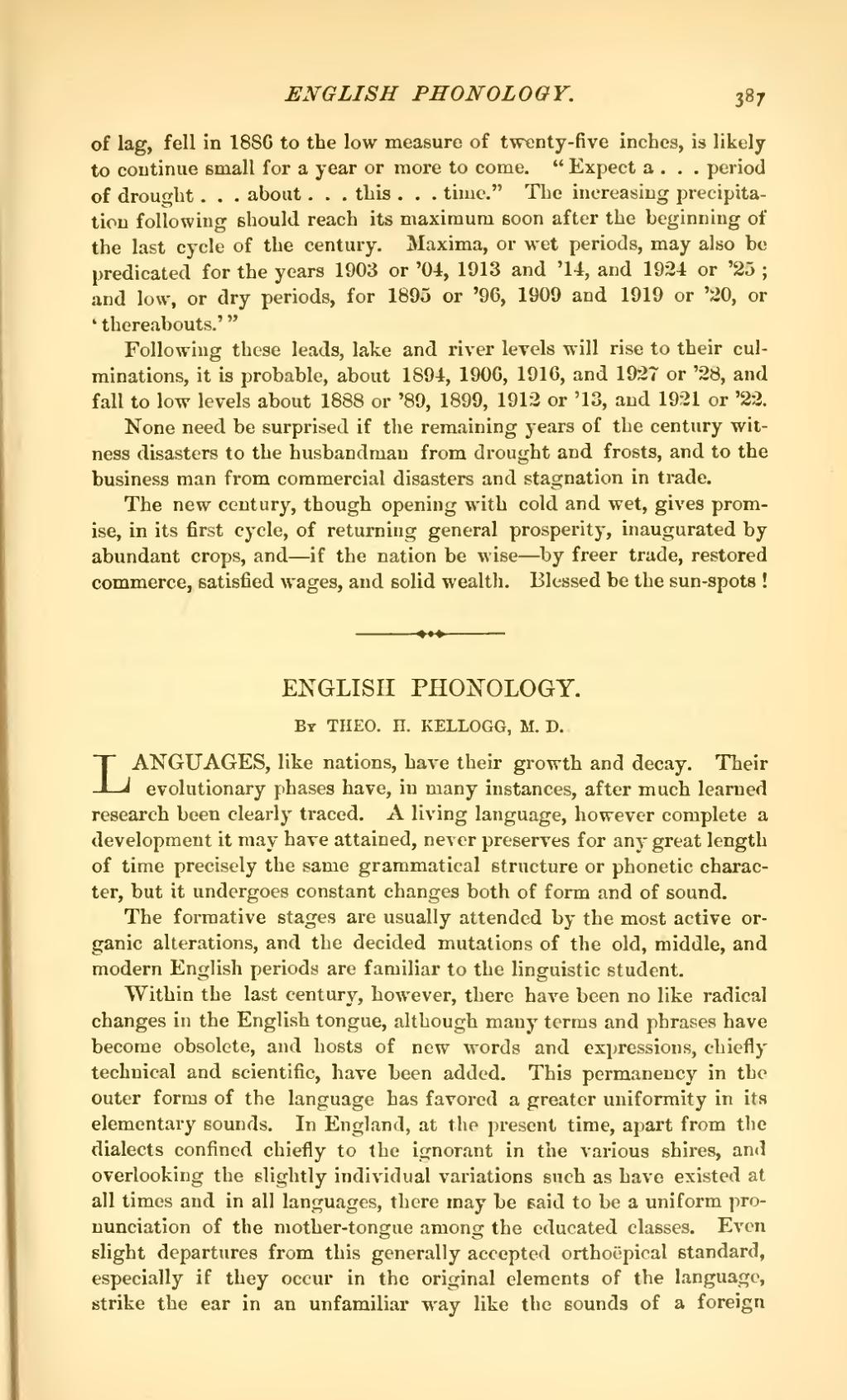of lag, fell in 1886 to the low measure of twenty-five inches, is likely to continue small for a year or more to come. "Expect a . . . period of drought . . . about . . , this . . . time." The increasing precipitation following should reach its maximum soon after the beginning of the last cycle of the century. Maxima, or wet periods, may also he predicated for the years 1903 or '04, 1913 and '14, and 1924 or '25; and low, or dry periods, for 1895 or '96, 1909 and 1919 or '20, or 'thereabouts.'"
Following these leads, lake and river levels will rise to their culminations, it is probable, about 1894, 1906, 1916, and 1927 or '28, and fall to low levels about 1888 or '89, 1899, 1912 or '13, and 1921 or '22.
None need be surprised if the remaining years of the century witness disasters to the husbandman from drought and frosts, and to the business man from commercial disasters and stagnation in trade.
The new century, though opening with cold and wet, gives promise, in its first cycle, of returning general prosperity, inaugurated by abundant crops, and—if the nation be wise—by freer trade, restored commerce, satisfied wages, and solid wealth. Blessed be the sun-spots!
| ENGLISH PHONOLOGY. |
By THEO. H. KELLOGG, M. D.
LANGUAGES, like nations, have their growth and decay. Their evolutionary phases have, in many instances, after much learned research been clearly traced. A living language, however complete a development it may have attained, never preserves for any great length of time precisely the same grammatical structure or phonetic character, but it undergoes constant changes both of form and of sound.
The formative stages are usually attended by the most active organic alterations, and the decided mutations of the old, middle, and modern English periods are familiar to the linguistic student.
Within the last century, however, there have been no like radical changes in the English tongue, although many terms and phrases have become obsolete, and hosts of new words and expressions, chiefly technical and scientific, have been added. This permanency in the outer forms of the language has favored a greater uniformity in its elementary sounds. In England, at the present time, apart from the dialects confined chiefly to the ignorant in the various shires, and overlooking the slightly individual variations such as have existed at all times and in all languages, there may be said to be a uniform pronunciation of the mother-tongue among the educated classes. Even slight departures from this generally accepted orthoëpical standard, especially if they occur in the original elements of the language, strike the ear in an unfamiliar way like the sounds of a foreign
